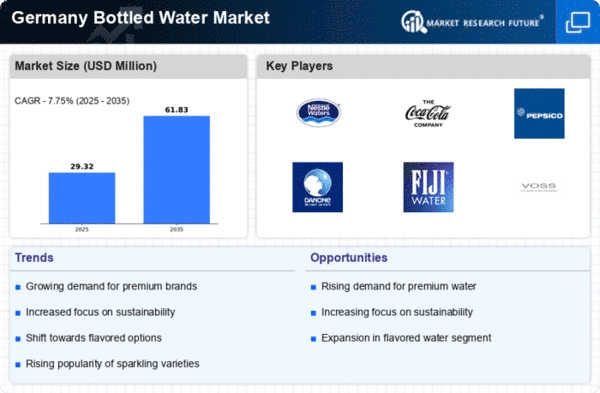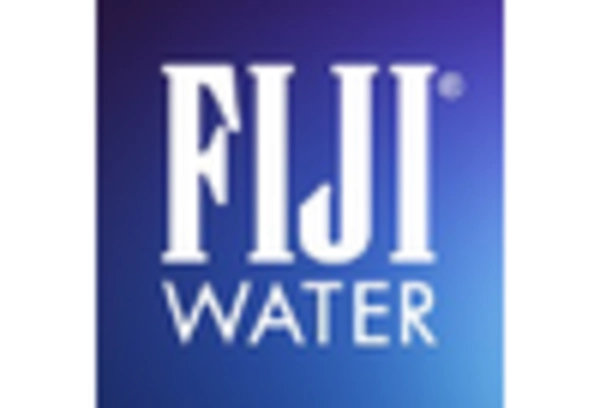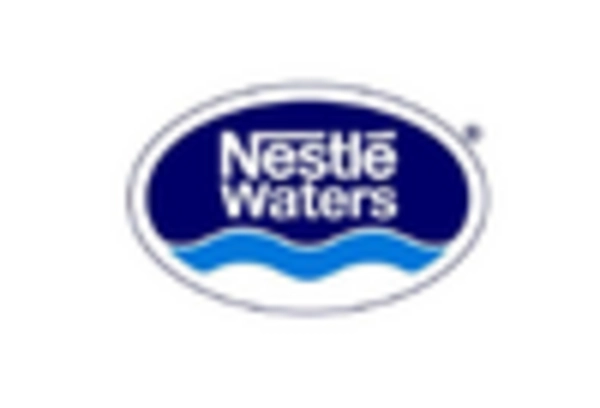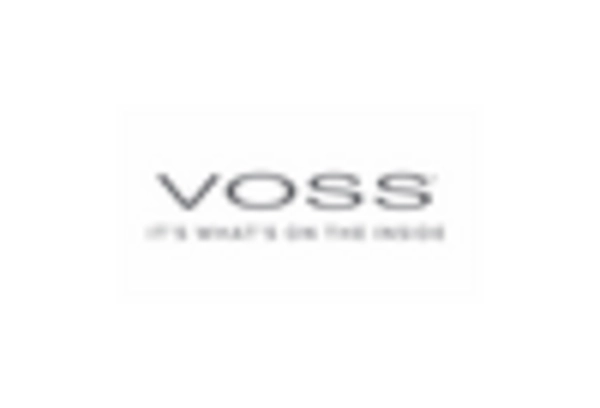E-commerce Growth
The rise of e-commerce in Germany is transforming the way consumers purchase bottled water, acting as a significant driver for the market. With the convenience of online shopping, consumers are increasingly opting for home delivery services for their hydration needs. Recent statistics suggest that online sales of bottled water have surged by 25% in the past year, indicating a shift in purchasing behavior. The bottled water market is adapting to this trend by enhancing online visibility and offering subscription services. This shift not only meets consumer demand for convenience but also opens new avenues for growth in a competitive landscape.
Diverse Product Offerings
The bottled water market in Germany is experiencing a diversification of product offerings, which serves as a key driver for growth. Companies are introducing flavored, mineral-enhanced, and functional waters to cater to varying consumer preferences. This trend is supported by market data indicating that flavored bottled water sales have increased by 20% in the last year alone. As consumers seek unique and enjoyable hydration experiences, the market is likely to expand further. This diversification not only attracts new customers but also encourages brand loyalty, as consumers are more inclined to explore different options within the bottled water market.
Environmental Regulations
Germany's stringent environmental regulations are influencing the bottled water market significantly. The government has implemented policies aimed at reducing plastic waste, which has prompted companies to innovate in packaging solutions. For instance, the introduction of biodegradable bottles and the promotion of recycling initiatives are becoming more prevalent. As a result, the bottled water market is adapting to these regulations, potentially leading to a 15% increase in eco-friendly product offerings by 2026. This shift not only aligns with consumer preferences for sustainable products but also positions companies favorably in a competitive landscape where environmental responsibility is increasingly valued.
Rising Health Consciousness
The increasing awareness of health and wellness among consumers in Germany appears to be a primary driver for the bottled water market. As individuals prioritize hydration and seek healthier beverage options, the demand for bottled water has surged. Recent data indicates that bottled water consumption in Germany has risen by approximately 10% over the past year, reflecting a shift away from sugary drinks. This trend is likely to continue as consumers become more educated about the benefits of hydration. The bottled water market is thus positioned to capitalize on this health-conscious movement, with brands emphasizing purity, mineral content, and functional benefits to attract discerning consumers.
Urbanization and Lifestyle Changes
The ongoing urbanization in Germany is reshaping consumer lifestyles, which in turn impacts the bottled water market. As more individuals move to urban areas, the demand for convenient and portable hydration solutions has escalated. Bottled water is perceived as a practical choice for busy city dwellers, contributing to a projected growth rate of 8% in the market over the next few years. The bottled water market is likely to benefit from this trend, as urban consumers seek products that fit their fast-paced lives. Additionally, the rise of outdoor activities and fitness trends in urban settings further fuels the demand for bottled water.
















